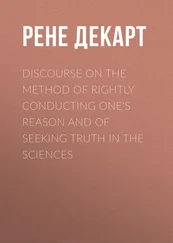36. We are in process of growth into the highest spiritual manhood and womanhood. We get many falls and bumps on the way, but only through these, not necessarily by them, can our growth proceed. Father and mother, no matter how strong or deep their love, cannot grow for their children; nor can God, who is omnipotence, at the center of our being, grow spiritually for us without making of us automatons instead of individuals.
37. If you keep your thoughts turned toward the external of yourself, or of others, you will see only the things that are not real, but temporal, and which pass away. All the faults, failures, or lacks in people or circumstances will seem very real to you, and you will be unhappy and sick.
38. If you turn your thoughts away from the external toward the spiritual, and let them dwell on the good in yourself and in others, all the apparent evil will first drop out of your thoughts and then out of your life. Paul understood this when he wrote to the Philippians: "Finally, brethen, whatsoever things are true, whatsoever things are honorable, whatsoever things are just, whatsoever things are pure, whatsoever things are lovely, whatsoever things are of good report; if there be any virtue, and if there be any praise, think on these things" (Phil. 4:8).
39. We all can learn how to turn the conscious mind toward universal Mind, or Spirit, within us. We can, by practice, learn how to make this everyday, topsy-turvy, "mind of the flesh" be still and let the mind that is in God (all-wisdom, all-love) think in us and out through us.
40. Imagine, if you will, a great reservoir, out of which lead innumerable small rivulets or channels. At its farther end each channel opens out into a small fountain. This fountain is not only being continually filled and replenished from the reservoir but is itself a radiating center whence it gives out in all directions that which it receives, so that all who come within its radius are refreshed and blessed.
41. This is our relation with God. Each one of us is a radiating center. Each one, no matter how small or ignorant, is the little fountain at the far end of a channel, the other end of which leads out from all there is in God. This fountain represents the individuality, as separate from the great reservoir--God--and yet as one with Him, and without Him we are nothing.
42. Each of us, no matter how insignificant he may be in the world, may receive from God unlimited good of whatever kind he desires, and radiate it to all about him. But remember, he must radiate if he would receive more. Stagnation is death.
43. Oh, I want the simplest mind to grasp the idea that the very wisdom of God--the love, the life, and the power of God--are ready and waiting with longing impulse to flow out through us in unlimited degree! When it flows in unusual degree through the intellect of a certain person men exclaim, "What a wonderful mind!" When it flows through the hearts of men it is the love that melts all bitterness, envy, selfishness, jealousy, before it; when it flows through their bodies as life, no disease can withstand its onward march.
44. We do not have to beseech God any more than we have to beseech the sun to shine. The sun shines because it is a law of its being to shine, and it cannot help it. No more can God help pouring into us unlimited wisdom, life, power, all good, because to give is a law of His being. Nothing can hinder Him except our own lack of understanding. The sun may shine ever so brightly, but if we have, through willfulness or ignorance, placed ourselves, or have been placed by our progenitors, in the far corner of a damp, dark cellar, we get neither joy nor comfort from its shining; then to us the sun never shines.
45. So we have heretofore known nothing of how to get ourselves out of the cellar of ignorance, doubts, and despair; to our wrong thinking, God has seemed to withhold the life, wisdom, and power we wanted so much, though we sought Him ever so earnestly.
46. The sun does not radiate life and warmth today and darkness and chill tomorrow; it cannot, from the nature of its being. Nor does God radiate love at one time, while at other times, anger, wrath, and displeasure flow from His mind toward us.
47. "Doth the fountain send forth from the same opening sweet water and bitter? can a fig tree, my brethren, yield olives, or a vine figs" (Jas. 3:11).
48. God is All-Good--always good, always love. He never changes, no matter what we do or may have done. He is always trying to pour more of Himself through us into visibility so as to make us grander, larger, fuller, freer individuals.
49. While the child is crying out for its Father-Mother God, the Father-Mother is yearning with infinite tenderness to satisfy the child.
"In the heart of man a cry,
In the heart of God, supply."
RECAPITULATION
50. There is but one Mind in the universe.
51. Human mind, or intellect, makes mistakes because it gathers much information from without.
52. Universal Mind sees and speaks from within, it is all Truth.
53. Our way of thinking makes our happiness or unhappiness, our success or nonsuccess. We can, by effort, change our ways of thinking.
54. God is at all times, regardless of our so-called sins, trying to pour more good into our lives to make them richer and more successful.
Table of Contents
Then said Jesus unto his disciples, If any man will come after me, let him deny himself, and take up his cross, and follow me--Mt. 16:24.
1. All systems for spiritualizing the mind include denial. Every religion in all the ages had some sort of denial as one of its foundations. We all know how the Puritans believed that the more rigidly they denied themselves comfort the better they pleased God. So far has this idea taken possession of the human mind during some ages that devout souls have even tortured their bodies in various ways, believing that they were thus making themselves more spiritual, or at least were in some way placating an angry God. Even today many interpret the above-quoted saying of Jesus as meaning: If any man wants to please God he must give up about all the enjoyment and comfort he has, all things he likes and wants, and must take up the heavy cross of constantly doing the things that are repugnant to him in his daily life. This is why many young people say, "When I am old I will be a Christian, but not now, for I want to enjoy life awhile first."
2. There could, I am sure, be nothing further from the meaning of the Nazarene than the foregoing interpretation. In our ignorance of the nature of God, our Father, and of our relationship to Him, we have believed that all our enjoyment came from external sources, usually from gaining possession of something we did not have. The poor see enjoyment only in possessing abundance of money. The rich, who are satiated with life's so-called pleasures until their lives have become like a person with an over-loaded stomach, compelled to sit constantly at a well-spread table, are often the most bitter in the complaint that life holds no happiness for them. The sick one believes that, were he well, he would be perfectly happy. The healthy but hard working person feels the need of some days of rest and recreation, that the monotony of his life may be broken.
3. So ever the mind has been turned to some external change of condition or circumstance in pursuit of satisfaction and enjoyment. In after years, when men have tried all, getting first this thing and then that, which they thought would yield them happiness, and have been grievously disappointed, in a kind of desperation they turn to God and try to find some sort of comfort in believing that sometime, somewhere, they will get what they want and be happy. Thenceforth their lives are patient and submissive, but they are destitute of any real joy.
Читать дальше












